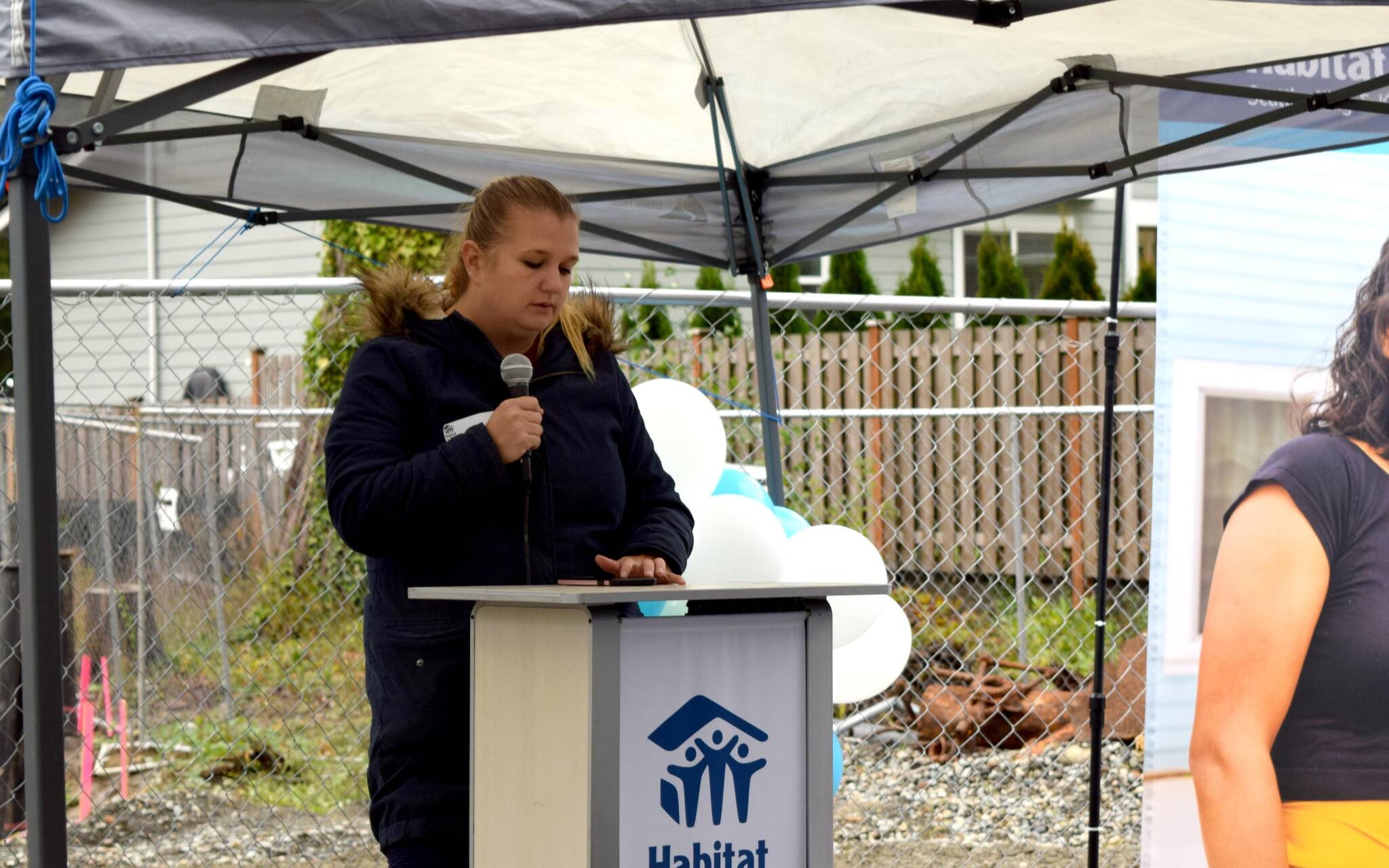Through a donation by the estate of George Krsak, and work done by the Seattle-King County Habitat for Humanity, the lives of seven families have been drastically changed as they are now able to afford housing in downtown North Bend.
Habitat for Humanity’s Tyler Town is a community of seven low-income houses, built at 250 East 2nd Street in North Bend, on land that was donated by the children of George Krsak. Five of the houses are being sold at 80% of the area median income (AMI) and two are being sold at 50% AMI.
“Tyler Town exemplifies what can be done with a real estate donation and the support of the community,” said Brett D’Antonio, chief executive officer for Habitat Seattle-King County. “We’re not just building houses. We’re bringing a community together.”
Over the last decade, housing costs across the county have soared. According to the Washington Center for Real Estate Research, the median cost of a house has grown from $420,500 in 2013 to $729,600 in 2020. According to Zillow, the typical cost of a North Bend home is $808,274 as of Aug. 2021.
Amid this growth, there remains a lack of affordable housing across the county. According to the King County Regional Affordable Housing Task Force, there are 27 available affordable housing units for every 100 extremely low-income households.
In North Bend, there are currently 13 income restricted housing units at or below the 50% AMI and an additional seven between 51% and 80% AMI. Habitat for Humanity has been in the county for 35 years, and has built or subsidized over 700 housing units. By 2025, Habitat is hoping to reach 1,000 units.
Still, D’Antonio said, Habitat often struggles to find available property on the Eastside.
The Tyler Town Community is currently the only Habitat project on the Eastside and is the first Habitat project in North Bend. Without the donation from the Krsak estate, Habitat would likely have been unable to build in North Bend due to the current housing market.
The children of George Krsak, who have chosen to remain anonymous, said that building a community like this was a dream of their father, who they described as a humble, hard working man who loved his family and community.
Krsak was born in 1922 in the town of Tyler, Washington, just outside of Spokane, which inspired the name of the community. He spent his life working in the U.S. Army and at Boeing. He also spent time working as a bricklayer, masonry contractor and volunteer for Friends of the Needy.
The land that once belonged to Krsak originally held only one house, but will now make room for seven houses, which are 1,250 square feet with three beds and one and a half bathrooms each. North Bend Mayor Rob McFarland praised the project for its maximization of the space.
“Some people don’t like the density. It makes them nervous, and that’s reasonable, but that’s what it’s going to take to get projects like this, housing that’s truly affordable,” he said. “It’s been a longstanding goal of mine and the city council to bring affordable housing options to the city. We are thrilled that seven deserving families will soon call our community home.”
The seven houses are currently under construction and are expected to be finished by 2022. Before the seven families can move in, they are required to put in 250 “sweat equity” volunteer hours either at the construction site or at a Habitat for Humanity store, as well as other tasks to prepare them for homeownership.
“To own something in this area, it’s incredible,” said Nicole Evans-Stanley, who, along with her husband and two young children, will be moving into a Habitat community in North Seattle later this year. “Owning a home has always been a goal of ours, but it has oftentimes felt like a pipe dream.”
Evans-Stanley and her husband moved to the Seattle area from Spokane in 2013, pursuing better work opportunities as well as better educational opportunities for their 4-year-old son and 6-year-old daughter. The couple, who met in high school, had been putting away money each month for a home since they were 18.
“We realized our bank account in the grand scheme of things wouldn’t get us very far,” she said. “It had become quite obvious that unless some miracle happened, we wouldn’t be able to own anything of our very own.”
After four years on the Habitat email list, Evans-Stanley said they finally got the call they had been approved for a house. She said her kids are excited about the home and have her drive by the property all the time.
“When we got the call, we were shocked. We still can’t believe it’s real.” she said. “Our dream of owning something of our very own, that seemed unattainable, is finally here.”


